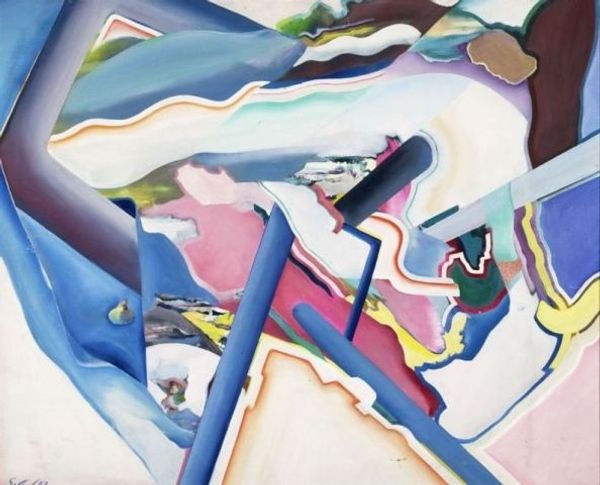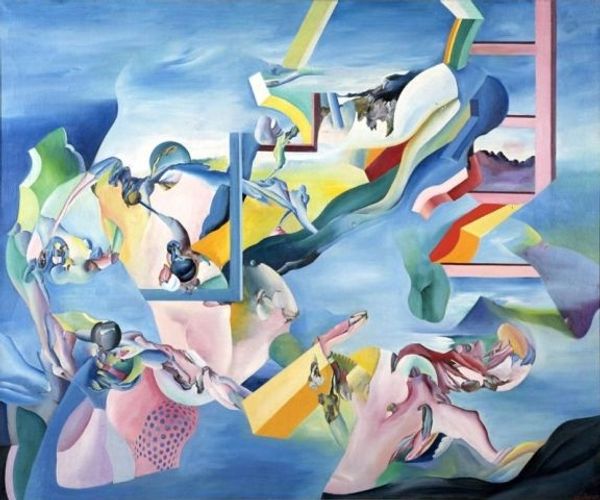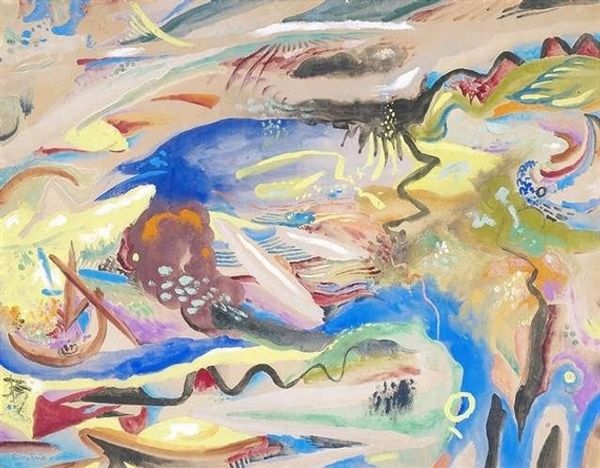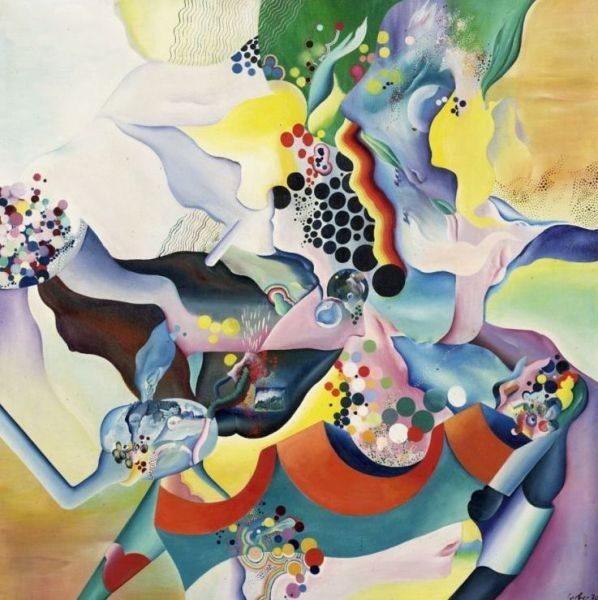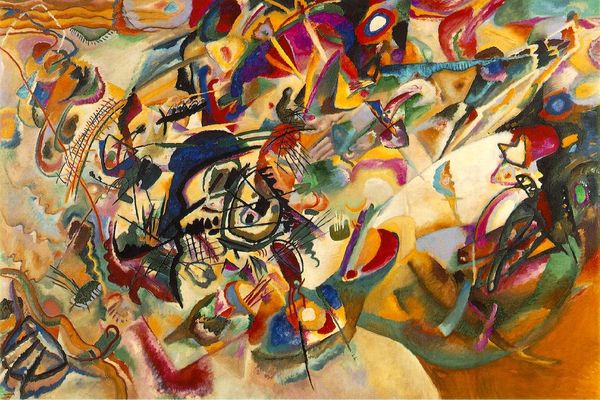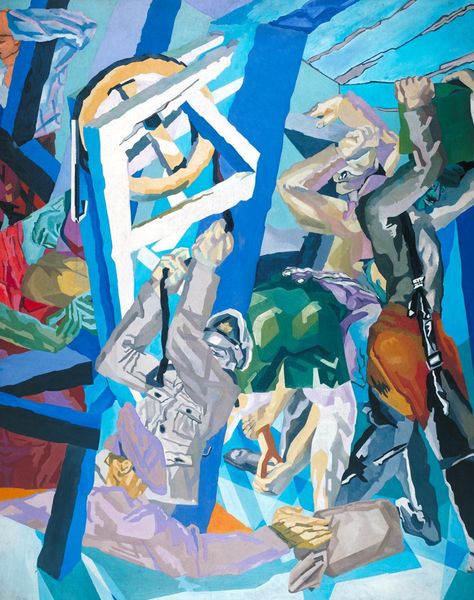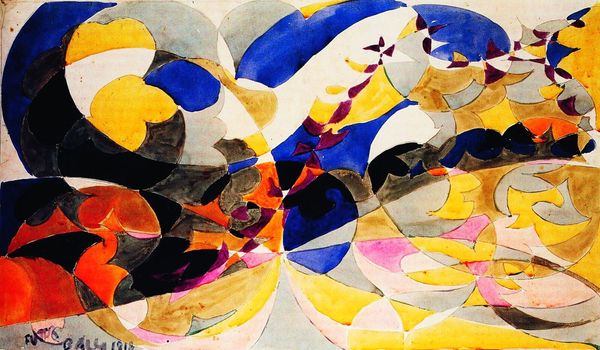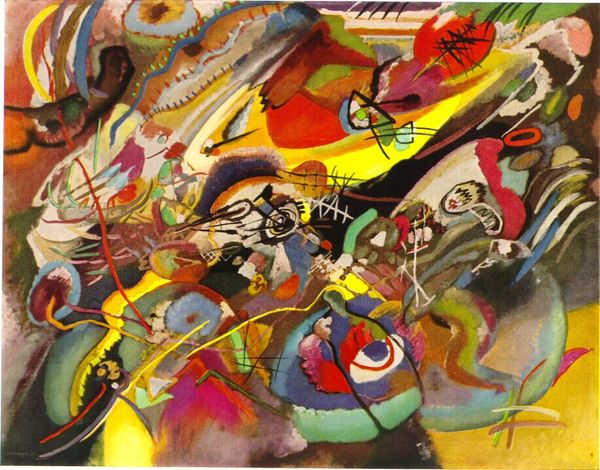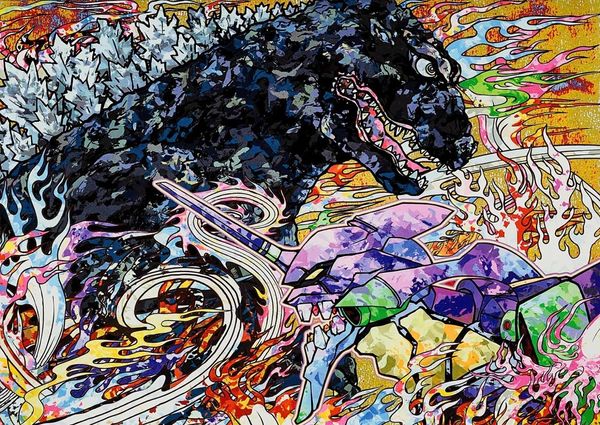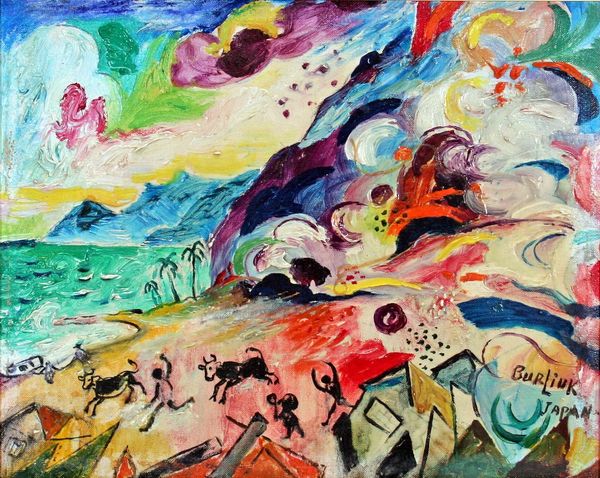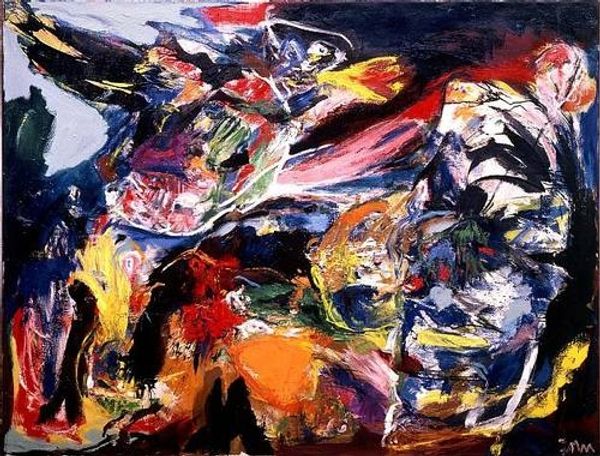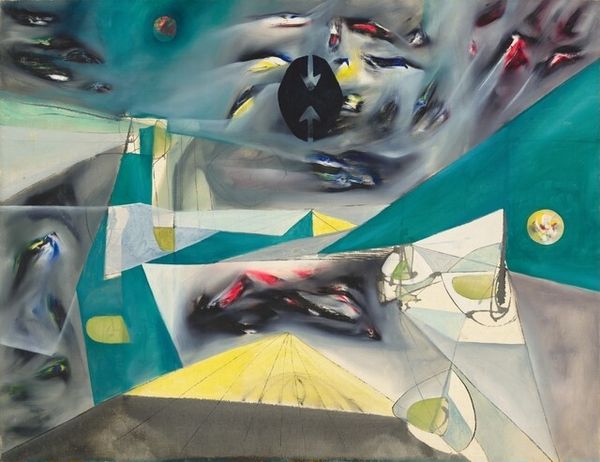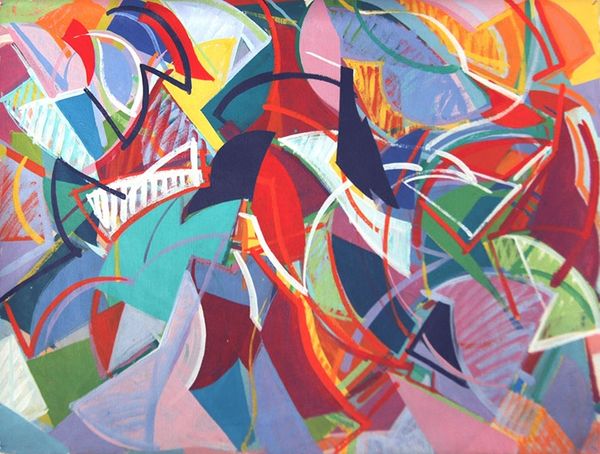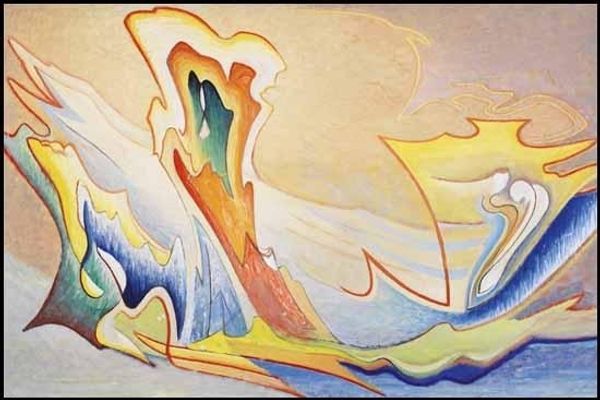
Copyright: Theo Gerber,Fair Use
Editor: So, this is "Ils rêvent de quitter le tableau" – They Dream of Leaving the Painting – made in 1970 by Theo Gerber, using acrylic paint. The swirl of colours, kind of land- and sea-scapes makes me think of the Fauvist movement... What do you see in it? Curator: I see a commentary on the materials of artmaking and the physical act of creation within a specific historical context. Gerber utilizes acrylic paint, a relatively new material in 1970, a mass-produced medium accessible due to industrial advancements. The layering and blending techniques suggest a negotiation between intention and chance, mirroring the unpredictable nature of artistic labor. Consider also the social landscape of 1970; do you see anything in this that speaks to artistic liberation? Editor: I guess the almost graffiti-like application nods to accessibility and democratization of art – art leaving the traditional institutions...is that what you mean? So how does that challenge high art? Curator: Exactly. Acrylics allowed for faster drying times and easier manipulation. Traditional oil painting demanded specialized skills and lengthy processes that cemented hierarchical structures. Here, Gerber disrupts that, engaging a faster, more improvisational mode. The materials themselves are thus inherently linked to a shifting social and cultural context and changing dynamics of labor. Does it speak of mass consumption as well? Editor: Maybe through that lack of preciousness? Not restrained or refined, the vibrant colours, bold forms almost scream 'mass produced', which creates a sense of immediacy... and maybe disposability too? Curator: Precisely. Think about how that disposable aspect reframes value, artistic integrity, and our own relationship with artistic consumption and creative labour itself. It's about asking if freedom from those established "rules" always leads to freedom FOR art. Editor: This has totally changed how I view the piece – not just an expressionist landscape, but almost a socio-political artifact. Curator: Yes, we've examined how its materiality and the means of its production connect to broader historical forces. Considering art’s means of production helps us reconsider everything that we think that we know about art.
Comments
No comments
Be the first to comment and join the conversation on the ultimate creative platform.
